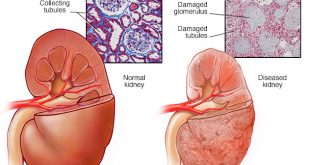Introduction
All patients who have undergone kidney transplantation must take “transplant” medications as long at the transplanted kidney continues to function. Premature stopping of these “transplant” medications will result in failure of the transplanted kidney from allograft rejection and patients will need to return back to dialysis. Hence medication adherence is extremely important in patients with a functioning transplanted kidney.
Medication adherence is a reflection of the degree to which a patient follows directions regarding treatments, medications, and clinical surveillance. Significant non-adherence is estimated to occur in 22% of kidney recipients and may be a component of graft kidney loss in approximately 36% of recipients.
Classification of risk factors for non-adherence to medications 1
Table 1: WHO classification of risk factors for no adherence (64)
| Socio-economic factors | Age, gender, nationality, live alone/with others, employment status, perceived adequacy of one’s financial situation, education level. |
| Patient-/disease-related factors | Health beliefs/behaviours, vaccination status, smoking history, alcohol use, depression |
| Treatment-related factors | Patients symptoms, side effects of medications |
| Healthcare system/healthcare worker factors | Lack of health insurance or health benefits |
Risk factor for non-adherence to medications 1
Table 2: Risk factors associated with adherence and non-adherence with immunosuppression
| Adherence | Non- adherence |
| Older patient (>40 yr): female gender; Caucasian; good social support | Younger patient (<25 yr); male gender, non-Caucasian; poor social support |
| Good insight into illness; positive perception of treatment benefits; education regarding illness/ treatment; absence of psychological or psychiatric illness | Poor illness insight; poorly perceived treatment benefits; lack of education about illness |
| Good provider-patient rapport; simpler medication regimens; lower medication toxicity/side effects; lower symptoms distress | Poor provider-patient rapport, complex medical regimens; higher medication toxicity/side effects; high symptoms distress |
| Healthcare coverage; access to health care; available transportation | Lack of healthcare coverage; impediments cost of medication, including unemployment/copayments; greater geographic distance to travel; poor transportation access |
| Diabetes mellitus, shorter time since transplantation | Patient without diabetes; increased period of time since transplantation |
Types of medications used after transplant
Two different groups of medications are commonly used in transplant patients:
- Anti-rejection/immunosuppression medications
- Tacrolimus
- Cyclosporine
- Mycophenolate mofetil
- Mycophenolate sodium
- Prednisone
- Sirolimus
- Everolimus
- Anti-infection medications
These group of medications is used to prevent the body’s immune system from attacking (rejecting) the transplanted organ. Examples of these medications are:-
Patients who have undergone organ transplant are usually prescribed 2 or 3 of these medications. These are usually taken lifelong or until the organ failed. As these immunosuppressive medications are vital in ensuring the continual function of the transplanted organs, it is extremely important that these medications should not be missed and these medications should be taken around the same time to ensure that the concentration of these medications in the blood remained relatively constant.
Certain food e.g grapefruit can interact with some of these medications and hence, should be avoided. Certain medications can also interact with these medications. Hence transplant patients should also discuss with their transplant doctors before starting any new medications or supplements.
The risk of infection is highest in first 6-12 months after transplant and patients might be prescribed with medications to prevent infections. Examples of these medications are:
- Syrup Nystatin
- Bactrim
- Valganciclovir
Summary
Given its potentially devastating consequences, adherence deserves attention. Educating the individual recipient and caregiver is essential in preventing nonadherence to medications.
Reference
- Optimizing Medication Adherence: An Ongoing Opportunity To Improve Outcomes AfterKidney Transplantation Mary B. Prendergast, and Robert S. GastonCJASN July 2010 vol. 5 no. 7 1305-1311
| Last Reviewed | : | 24 June 2016 |
| Writer | : | Dr. Shahnaz Shah Firdaus Khan |
| Accreditor | : | Dr. Wong Hin Seng |
 PENDIDIKAN PESAKIT Kementerian Kesihatan Malaysia
PENDIDIKAN PESAKIT Kementerian Kesihatan Malaysia
